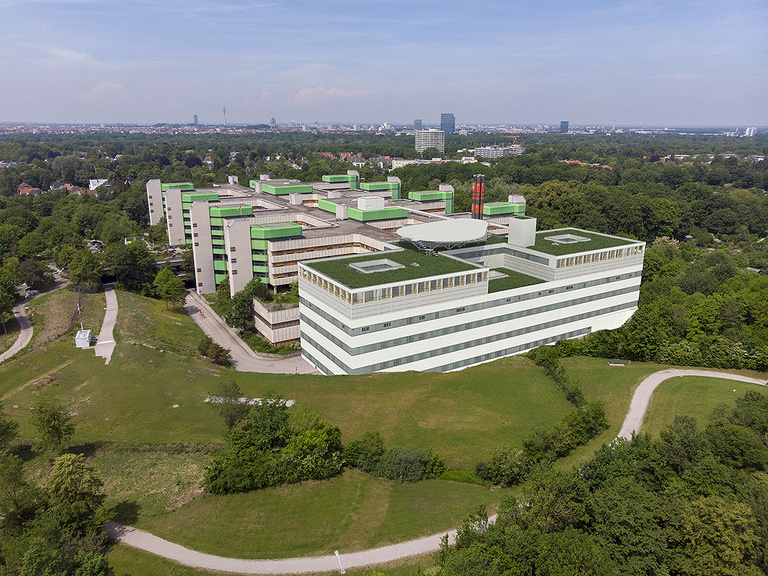Stuttgart/Munich, Germany, June 11, 2025. With 1,000 beds, Munich Clinic Bogenhausen (part of München Klinik gGmbH or Munich Municipal Hospital Group – MMHG) is now the biggest and most important healthcare provider of the Bavarian State Capital of Munich. It is also one of the most advanced hospitals in the country, following the addition of a new six-story annex to accommodate departments including Germany’s most advanced transplant unit for severe burn injuries, as well as 17 state-of-the-art operating rooms – two of which are hybrid operating rooms for robot-assisted surgery. The new building, which is connected seamlessly to the existing hospital complex, was formally opened in the middle of May. The intensive care unit for internal medicine and other important departments from Munich Municipal Hospital Group’s other locations were transferred to the new building from the middle of May while the hospital continued to run as normal. The total investment volume of the large-scale project is around 170 million euros. The experts from Drees & Sommer provided project support to München Klinik gGmbH. Drees & Sommer specializes in construction, real estate and infrastructure consulting services.
With around 27,000 square meters of additional space, the new building offers a state-of-the-art environment for networked medicine and healthcare from an interdisciplinary team, with the welfare of patients as its focus. The new building sets new standards for in-patient care and medical engineering.
Precision in Coordination for the Highest Level of Reliability
To ensure that the technology functions reliably and smoothly, a precisely coordinated interaction between all technical trades was necessary right from the beginning of the project. Drees & Sommer played a leading role: the team headed by project manager Tobias Fichtl was responsible for the commission management of technical building services across all trades, and the technical monitoring of test and trial operations.
Tobias Fichtl said: “A construction project of this size, with highly diverse user requirements and involving very complex medical engineering and several different trades, demands very high standards of technical coordination. Using structured commission management processes, we were able to make sure that all the systems – from ventilation and air conditioning systems through sterilization processes to building automation – were precisely coordinated with each other, thoroughly tested, and put into operation by stages.” He explained that the objective was not only testing the individual components but also to check and optimize the complex interaction between all technical systems during operation: “That was a key precondition for the provision of consistent medical care and fault-free operation,” the project manager added.
More Light, More Space, More Options
The hospital management now also benefits fully from the technological foundation: with the new extension, Munich Clinic Bogenhausen not only gains significantly more space, but also benefits from medical progress. The core of the new building is a modern operating theatre environment with a total of 17 operating rooms, two of which are hybrid operating rooms where two robots will be used in future. Dr. Götz Brodermann, Chairperson of the Board of Management of Munich Municipal Hospital Group, commented on the innovative design: “All operating rooms have access to daylight. Working under artificial lighting for hours is completely different from working in natural light with a view of green surroundings.“
Emergency care has also been significantly improved: A helipad on the roof enables seriously injured or critically ill patients to be admitted directly. An express elevator transports them quickly and directly to the operating wing. An extended area on two floors of the new building is available for patients who have to be taken directly into intensive care. In addition to the increased bed capacity in this area, innovative lighting technology significantly reduces the risk of post-operative delirium. The new building also houses the most advanced transplant unit for severe burn injuries in Germany. Eight rooms are fully climate-controlled, which means the temperature and quality of the air are regulated to give transplant patients optimum protection.
In the lower basement, a high-capacity sterile services department is also part of the healthcare concept. “Around six million operating instruments per year from all four locations of Munich Municipal Hospital Group will be processed centrally here – cleaned, tested and sterilized,” Dr. Brodermann pointed out. A closed, hygienically controlled system ensures efficient processing and noticeably relieves the pressure on everyday hospital operations.
On the Home Stretch
The hospital began moving into the building in the middle of May. The departments that have moved into the annex include the intensive care unit for internal medicine, the bone marrow transplant unit, and further important departments from other locations of Munich Municipal Hospital Group. This meant that all medical care continued to be provided to patients as usual throughout the move, whilst, in parallel, all move-related organizational and logistic matters were addressed. Completion of the move to the new extension building is planned for mid-July.
